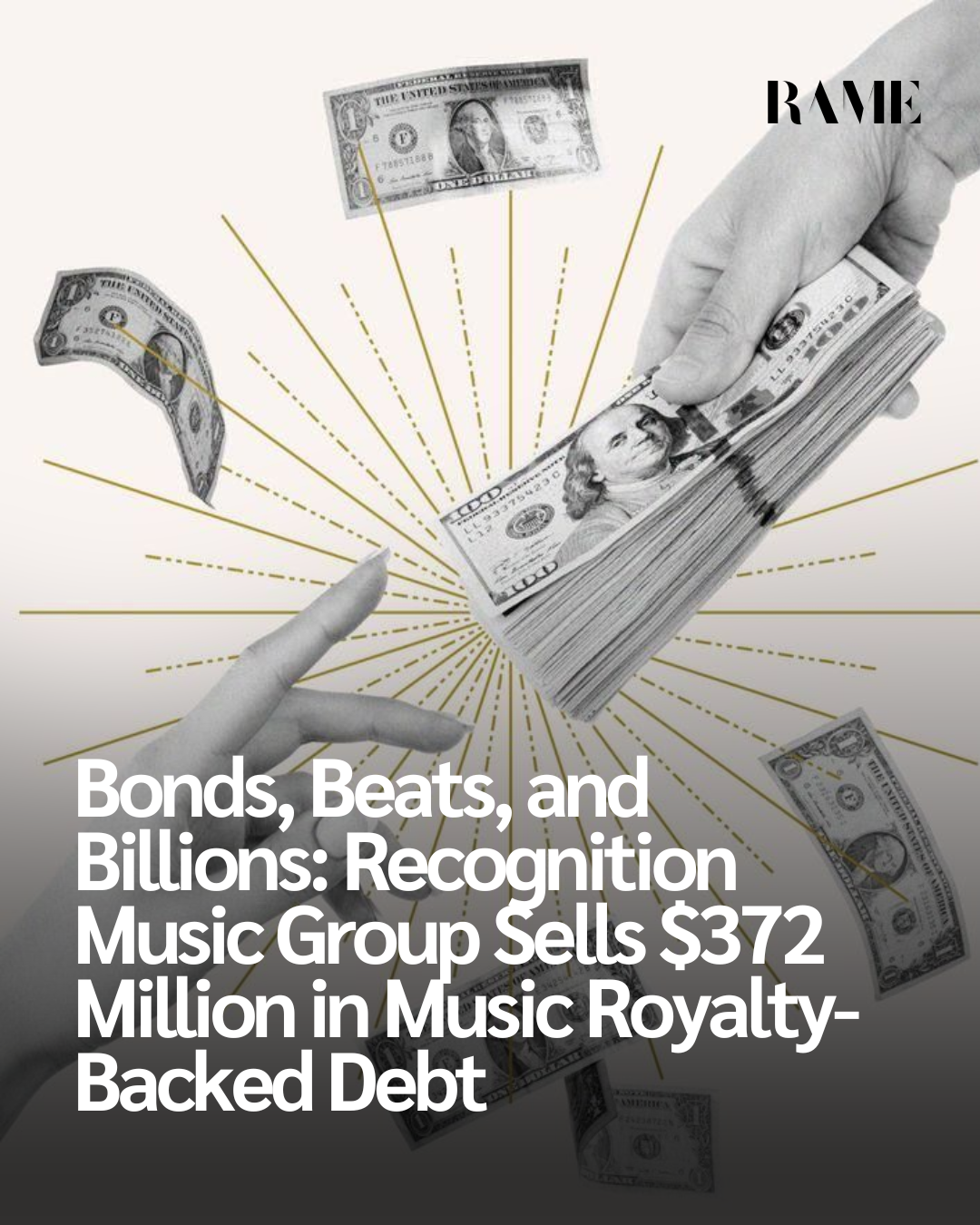In a move that merges Wall Street finance with pop culture icons, Recognition Music Group is selling $372 million worth of bonds backed not by real estate or oil, but by royalties from hit songs by global superstars like Justin Bieber, Shakira, and the Red Hot Chili Peppers. It’s not just a quirky financial play. This is part of a serious strategy to refinance debt, expand operations, and capitalize on the consistent cash flow from the streaming-fueled music economy.
Let’s break down what this deal really means and why investors are suddenly interested in pop hooks more than hard assets.
How Recognition Is Turning Music into Money
Recognition Music Group formerly known as Hipgnosis is selling bonds backed by future royalty income from a catalogue of more than 47,000 songs. These include global chart-toppers from the likes of Journey, Shakira, Justin Bieber, and the Red Hot Chili Peppers. The deal includes an additional $340.8 million worth of assets, bringing the total valuation of the collateral to $2.95 billion.
According to a preliminary rating from Kroll Bond Rating Agency, the A-2 class of this offering has been graded A. The proceeds from the bond sale will go toward paying off existing debt, building financial reserves, covering transaction costs, and other general expenses.
This isn’t Recognition’s first rodeo. In 2022, it entered the asset-backed securities (ABS) market with a $221.65 million issuance. Then, in late 2024, it closed a $1.47 billion deal. Clearly, there’s investor appetite for music as an asset class and Recognition is leaning in hard.
Why Music Royalties Are Attracting Wall Street
Here’s the thing: streaming changed everything.
According to the International Federation of the Phonographic Industry’s (IFPI) 2025 Global Music Report, global streaming revenue hit $20.4 billion last year up from just $1.8 billion a decade ago. This steady growth makes royalties an attractive, predictable income stream, perfect for backing complex financial products like ABS.
“Music royalties are increasingly being viewed like commercial real estate was 20 years ago a durable, cash-generating asset with low correlation to traditional markets,” said an unnamed industry analyst cited by Bloomberg.
The rising tide of music consumption, especially through platforms like Spotify, Apple Music, and YouTube, means investors are essentially betting on the staying power of pop culture. When a Justin Bieber hit gets streamed, money flows. That flow can be predicted, packaged, and sold.
Inside Recognition Music Group’s Playbook
Recognition Music Group is backed by Blackstone Inc. and led by veteran music executive Merck Mercuriadis, who founded the company (then known as Hipgnosis) in 2018. Mercuriadis previously managed megastars like Elton John and Beyoncé, giving him unique insight into the long-term value of music rights.
When Blackstone affiliates acquired the company in 2021, it marked a major inflection point. Since then, Recognition has been aggressive in acquiring catalogs and issuing debt backed by them. Its portfolio skews older: roughly 76% of its songs were released over a decade ago, according to Kroll.
“Older songs have proven staying power and consistent royalties,” Kroll noted in its analysis. That kind of predictability is gold in finance.
London-headquartered, the group works with major rights administrators like Sony Music Publishing, Kobalt, and Universal Music Publishing Group. For its latest bond sale, Barclays Plc is serving as the lead bookrunner.
The Bigger Picture: Music as a Financial Asset
Recognition isn’t alone in this space. The overall market for music royalty ABS is now estimated at $1.7 billion so far in 2025, according to Bloomberg. And there’s a broader trend unfolding: music catalogs are becoming financial assets in their own right, often fetching valuations that rival physical infrastructure or tech IP.
This has implications beyond finance. As more private equity and institutional investors get involved, questions about artist control, creative legacy, and long-term ownership of culture are coming to the surface.
“Turning songs into securities might help fund growth, but it also changes the nature of what music represents,” said a former music label executive. “It becomes less about art, and more about yield.”
When Pop Meets Portfolio
This $372 million bond sale is more than a corporate finance deal it’s a snapshot of how the music industry is evolving. Recognition Music Group is betting that the value of timeless hits and streaming-era superstars will continue to rise. Investors are buying in. The question now is whether this financial remix can keep up with the beat of a fast-changing culture.
Either way, the music royalty market is no longer a novelty. It’s a business serious, sophisticated, and worth billions.



